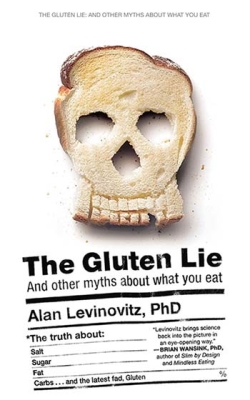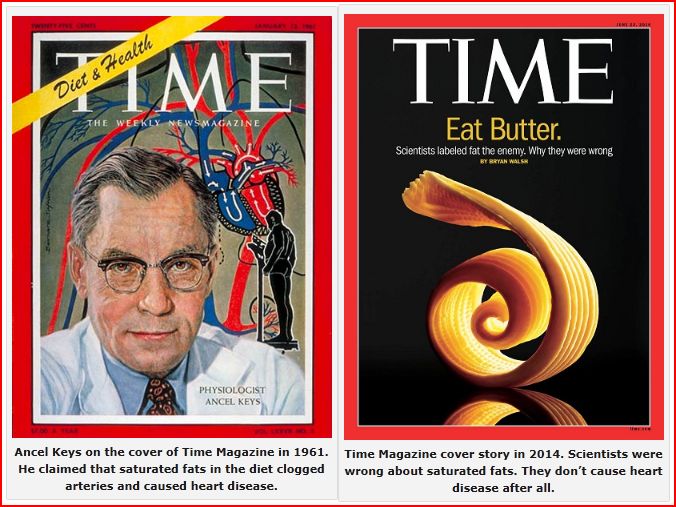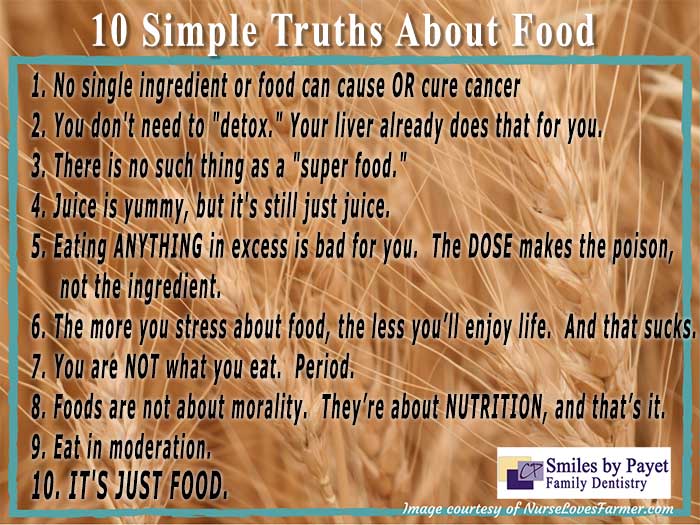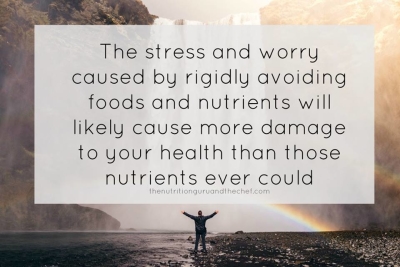
Before diving in, please understand that this is a very incomplete review of a truly superb book about the realities of health and nutrition. I could write so much more but ultimately stopped so as to not write a book of my own. However, I HIGHLY recommend this book! Dr. Payet
MSG. Salt. Fat. Adkins. Sugar. Paleo. Organic. Gluten. Juicing. Cleanses. Detoxes. GMOs. Meat. Vegetarian. Vegan. Superfoods. High fat/low carb. Low fat/high carb.
How many of these food fads have you lived through? Since my own birth in 1971 (where the heck did those years go???), I’ve seen all of them to varying degrees. And the common theme behind all of them is that there is some ingredient, or combination of ingredients, that possess either demonic or miraculous powers that either are the cause of every known illness or will cure every known modern illness, make you lose weight without effort, prolong your life, and more.
Honestly, if all any or all of them were really that bad, you’d think that humanity would have eaten itself into extinction by now – or there would be this big population of super-humans eating only super foods.. So why is it that the population just keeps increasing in size every year? Why do people still die even after switching to miracle diets and avoiding evil ingredients? Are foods really that miraculous or devilish? Or are they just foods, some of which have more of one nutrient than others but are deficient in other nutrients, and the old adage of “Moderation in all things” is really the best “diet” advice of all? And given all the claims, how the heck are you supposed to figure out if the claims are real, bogus, partially true, or what? Does it matter if a doctor is promoting it, or can a doctor promote quackery just like anyone else? Just read this question (somewhat dramatized by me) by one of my friends:
It’s so hard to trust what science says, because it keeps changing. First butter was bad, now it’s good; meat was good, now it’s bad. Salt was the food of the devil and would kill you with high blood pressure, but now it’s no big deal. Red wine is healthy – oops, no it’s not! Is tea good for me this week or not? Is my stomach upset because of IBS or because of gluten? Oh wait, wasn’t it MSG? So why should I believe the “research” when “Science” keeps changing its mind every year?
You know what? His frustration is understandable, and it’s also very well addressed by Professor Alan Levinowitz, the author of The Gluten Lie: and Other Myths About the Food You Eat in this quote:
The silliness of identifying dietary demons and super-foods was documented in a 2013 systematic review published in the American Journal of Clinical Nutrition, titled “Is everything we eat associated with cancer?” The review found that 80% of common ingredients had been connected with cancer risk in published articles, with most of those reporting a statistically significant effect, either positive or negative. Analysis of the studies, however, showed that they usually highlighted “implausibly large effects, even though evidence is weak.”
These 2 covers of Time Magazine, 53 years apart, illustrate the point pretty well, don’t they?

Celiac Disease is Real and Serious
Here’s the thing: this book really isn’t about gluten anyway. Before going any further, let’s be clear that Professor Levinowitz is in no way disputing the reality of Celiac Disease, which was first recognized in the early 1900’s, identified by Dutch physician Willem Dicke in 1941, and definitively confirmed by British physician Margot Shiner in 1956. (Additional reading on Celiac Disease). It is a real and very serious genetic disease that affects approximately 1 in 100 people. I’m not going to spend much time on Celiac Disease or gluten allergy specifically, as there is a wealth of good information online from reputable sources, some of which are referenced at the end of this article.
The whole point of the book, really, is that the current hype and hysteria surrounding gluten and Celiac Disease is (except for those people who genuinely have a medically diagnosed gluten allergy) not much more than the next in a long history of such hype and hysteria surrounding various foods, food groups, and specific ingredients. And these patterns have more to do with religious-style thinking and faith than they do with science, which is why is it so difficult to “combat” or stop them with science.
Celiac Disease Can Have Devastating Dental Effects
Again, I don’t want to spend too much time on dental effects, but the primary dental problem caused by celiac disease is rampant tooth decay, usually as a result of all the indigestion and heartburn experienced by sufferers. When gluten enters the stomach and triggers the allergy, excess stomach acid is triggered and often is regurgitated as acid reflux, and I’ve discussed the damage from GERD (gastric acid reflux disease) can cause previously.
Food Myths and Misinformation Weren’t Born Yesterday
As I began reading The Gluten Lie, I found it fascinating how a professor of ancient Chinese religions ended up writing a book about nutrition. Doesn’t seem like a natural connection, does it, but would you be surprised to learn that the first time a group of people believed that wheat was bad for you was more than 2,000 years ago, and they were Daoist Chinese monks claiming you’d live forever in perfect health if you eliminated wheat? Yup. Not surprisingly, people soon realized that it wasn’t true, so the monks had to change to something different. Also not surprisingly, that didn’t work either. But that’s how Prof. Levinowitz became interested in food myths, science, and pseudoscience, and as you read the book, you realize how insidious and powerful food myths can be. The further you read, the more you see the patterns, or what he terms “Tall [Food] Tales,” that are expressed in every new “revolutionary discovery” about food. And as you read, you realize just what nonsense all of them are!
Nutrition Science is REALLY Hard
Seriously – it is! The problem is, we all want simple and easy-to-implement solutions, and, unfortunately, there aren’t really any. Given the difficulties in doing high-quality research in a field in which the variables are incredibly difficult to control, it’s kind of curious why and how those who promote any kind of “miracle diet” or trash any “forbidden foods” can say the definitive things that they do. Just consider this brief (and incomplete) list of some factors that must be taken into consideration when designing and carrying out a study:
- Genetics
- Family history (not just the genes, but lifestyle)
- Large enough sample size (ideally in the thousands of subjects)
- Keeping the subjects in the study over a long enough period of time
- The frailty of human memory and recollection
- Subject bias
- Researcher bias
- Potential conflicts of interest

Not only that, much research that happens in the lab is either in petri dishes or non-human models such as rats and mice. But how applicable are those to real life? Anyone who has ever been in a research lab knows that initial results often don’t pan out. And to be really sarcastic about the whole “Food X has been found to kill brain cells in the lab!” hype, I find this particular comic perfectly illustrative. Yes, I know it’s kind of overblown, but that’s the whole point. Just because something does something in the lab is basically meaningless on its own; it can be a starting point, but that’s all.
This is also a good time to add this reminder that you shouldn’t believe every study you read in the press. Yes, I know that this makes it more difficult for the general public to know what to do, but it’s good to keep in mind any time some celebrity, medical or otherwise, starts touting some study that proves why they’re right. Be skeptical! And this is one of the real strengths of The Gluten Lie: after Prof. Levinowitz walks you through fad after fad, you see the patterns of deception, dishonesty, myth, hysteria, and more that typify virtually every diet, super-food, etc.
You Are NOT What You Eat
If you pay attention to environmental news at all, you may hear stories about certain species being hunted because someone, somewhere, believes that eating the heart of a lion will give you great courage, or the meat of the cheetah will make you fast, or the tiger’s penis will make you manly and virile. Most of us today recognize just how foolish these myths are, but are you so certain that you don’t unknowingly subscribe to some less obvious ones today?
Super Foods = Super Frauds
As any regular readers of my blog or social media know, I absolutely despite quacks like Dr. Oz. Quite frankly, the Dr. Oz Show is probably the most perfect, complete example of everything that is wrong with how Americans view food that Professor Levinowitz describes. Every day, the “Great Wizard” Oz (“Pay no attention to that man behind the curtain.”) spouts all kinds of nonsense about “miracle foods and supplements,” while also making medically and scientifically wrong statements about things like “GMOs cause autism and eating organic food will cure it.” HINT: No, they don’t. But Dr. Oz wasn’t the first – remember those Taoist monks? Here’s what Prof. Levinowitz relates about them:
But back then, like today, no one could agree on what constituted proper eating. monks recommended grain-free diets, meat-free diets, alcohol-free diets, and even food-free diets…. And like most of today’s diet gurus, they endorsed a variety of dubious dietary supplements: peach sap, coptis root, cassia root, “stony honey,” fuling fungus, pine resin, the “five metals,” the “eight minerals.”
Seriously – just substitute “juicing, detoxes, gluten-free, sugar-free, goji berries, green coffee bean extract,” and you’ll realize that none of this is new, and none of it is any better than the nonsense of thousands of years ago.
10 Simple Truths About Food
- No single ingredient or food can cause OR cure cancer
- You don’t need to “detox.” Your liver already does that for you.
- There is no such thing as a “super food.”
- Juice is yummy, but it’s still just juice.
- Eating ANYTHING in excess is bad for you. Remember: the DOSE makes the poison, not the ingredient.
- The more you stress about food, the less you’ll enjoy life. And that sucks.
- You are NOT what you eat. Period.
- Foods do not involve morality; it’s about NUTRITION, and that’s it.
- Eat in moderation.
- IT’S JUST FOOD.
And since so many people seemed to like these, I’ve created a Pin-able image to share. 🙂

Quit Stressing about Food & Enjoy It!
Levinowitz sums it up perfectly in this quote:
Eating in moderation has been the humdrum recommendation of common sense for thousands of years, and to that sage dietary advice, religion and sciene alike have added virtually nothing that stands up to rigorous scrutiny.
That’s it: Eat in Moderation. Yes – it’s really that simple. Eat a balanced diet that includes fruits, grains, meat (if you like), seafood, vegetables – it really doesn’t matter. The key is to balance your intake (how much you eat) with your outflow (how much you burn off.) Stressing out and worrying all the time about what you eat only makes you unhappy and worried, and quite frankly, will make you feel worse. Besides, as Levinowitz says about salt (and I agree 100% with him):
After a good dose of history and skepticism, you’ll be guiltlesly sprinkling your food with salt – which, as any good chef knows, will taste a whole lot better than low-salt abominations flavored with dried herbs and lemon juice.

Additional Reading:
Some of these links are additional reviews of the book, and others are helpful websites that support those who wish to eat an enjoyable meal without guilt by supporting moderation and balance. None of them will tell you to eliminate a food group (unless you have a genuine and medically diagnosed condition, of course) or ingredient that you like. They WILL help you understand why that’s not necessary and why it’s ok to truly enjoy food.
- Why I Don’t Buy Organic
- The Appeal of Fad Diets
- Food Faiths & Diet Religions
- Confront Death by Avoiding Fritos: The Gluten Lie, Fad Diets, & Foodie Faith
- Fitness Reloaded
- Go Kaleo – Amber Rogers
- The Moderation Movement (on FB)
- figureate: dieticians who love food
- The Nutrition Guru and the Chef
- Thinking Nutrition






